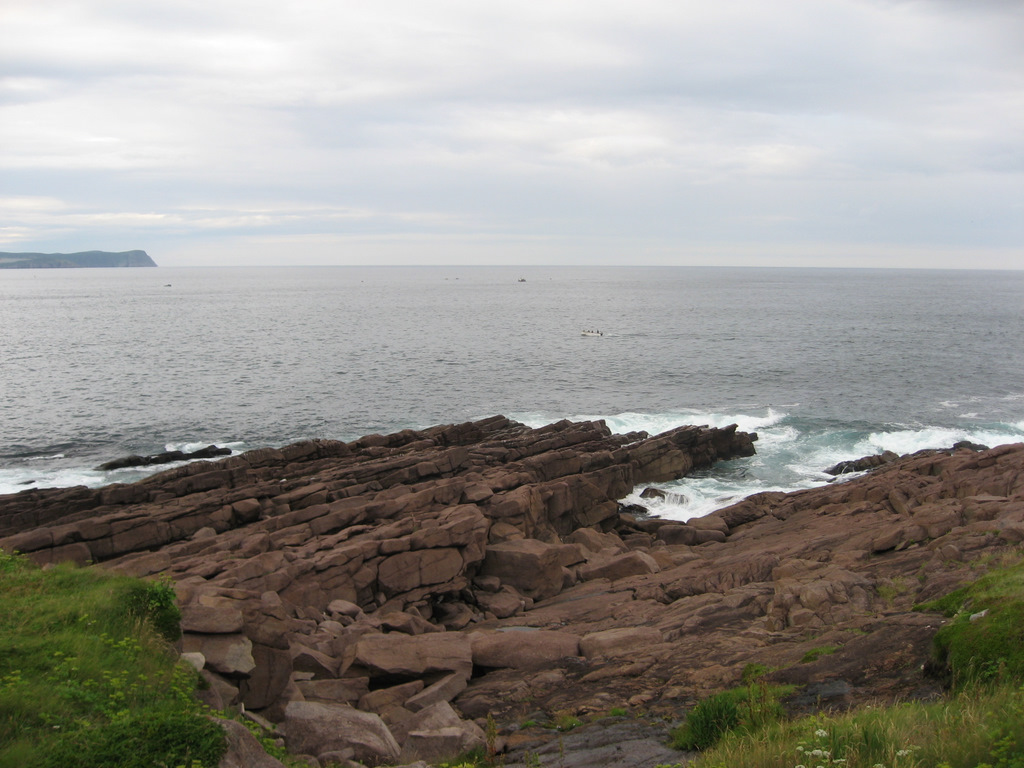
HALIFAX—The deaths of four Newfoundland cod fishermen in rough weather last summer has prompted a new call for improved fishing-industry safety regulations.
The Transportation Safety Board of Canada said Monday big changes are needed following its investigation into the capsizing of a small boat off Cape Spear on Sept. 6, 2016.
The independent agency released an investigation report that found the crew of the 6.7-metre Pop’s Pride — an open fibreglass boat with an outboard engine — chose to haul in their catch about three kilometres southeast of St. John’s despite poor weather that was beyond the normal operating conditions of the vessel.
“Unsafe work practices continue to put fishermen and their vessels at risk,” the report says. “The decision to sail in poor weather conditions was likely influenced by a combination of fisheries resource management measures and economic pressures.”
Amid two-metre waves and a wind speed of up to 55 kilometres per hour, the heavily loaded boat was swamped and sank, leaving the four men in 12 C water. At that temperature, hypothermia can occur within 35 minutes, the board said.
The fishermen did not have immersion suits, and no distress signals were transmitted because the boat was not equipped with a saltwater-activated emergency beacon or a two-way radio — safety items that were not required for this type of small craft.
Later that night, the bodies of Keith Walsh, Jr., and Bill Humby were recovered from the water. Both were wearing personal flotation devices.
However, the bodies of Walsh’s father. Keith Walsh Sr., and the younger man’s grandfather, Eugene Walsh, were never found.
The board concluded that improvements are needed for federal and provincial regulations regarding the use of emergency beacons, immersions suits, vessel stability and fisheries management measures. The recommendations are among a long list of suggestions the board has been making for several years to reduce fatalities in an industry that is widely regarded as the most dangerous in Canada.
In Newfoundland and Labrador, there was an average of two fishing-related fatalities each year from 2006 to 2016. There were seven fatalities in 2015 and 2016.
The board found that existing fisheries management rules may have played a role in the sinking of the Pop’s Pride. Under the crew’s fishing licence conditions, they were required to pull in their gillnets every 48 hours, which may explain why they decided to work in poor weather.
Although the regulations allow for extensions when there are circumstances beyond the fisherman’s control, this information was not included in the licence conditions for this fishery.
“It was also a priority to retrieve the catch for financial reasons, as the uncaught quota for that week could not be carried over to the following week,” the report says.
“Commercial fishing often creates economic pressures that can lead fishermen to take risks to maximize their catch. Complying with resource management measures can also contribute to risk taking.”
Although safety regulations have changed since the sinking, the board says the changes have been unsatisfactory because they do not include the requirement for all fishing vessels to carry an emergency beacon that can float free and automatically alert the search and rescue system.
Between February 2010 and September 2016, there were 10 capsizing or sinking accidents involving small fishing vessels of less than 12 metres that were not equipped with a beacon. In each case, no distress signals were received, the report says.
These 10 accidents resulted in 19 fatalities.
The new regulations say an immersion suit or an anti-exposure work suit is required for each person on board if the water temperature is less than 15 C.
A means of two-way communication is also required, but that type of equipment can include a cell phone — a device that was carried by each of the fishermen aboard Pop’s Pride.
As well, the boat was not required to undergo any kind of stability assessment.
“This type of vessel is vulnerable to swamping as a result of water coming over the sides,” the report said.
Last year, the board recommended the federal Department of Transport require all small fishing vessels to undergo a stability assessment and establish stability standards.
But the department later limited that requirement to all new commercial fishing vessels greater than nine metres in length.
“During public consultations, industry stakeholders considered the (TSB) proposal to be impractical” because it would impose an undue financial burden,” the report said.